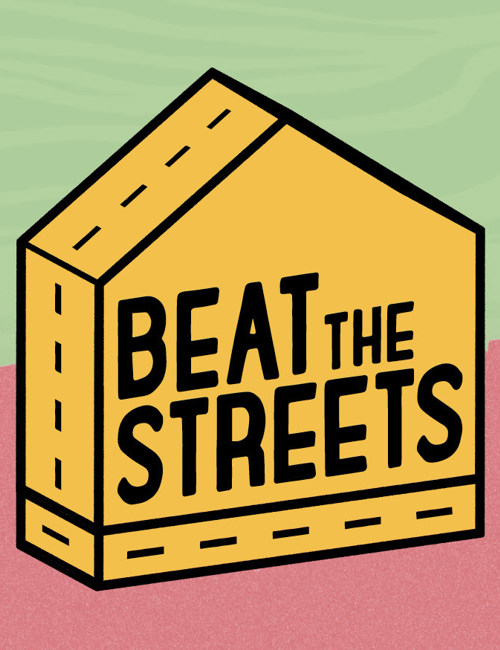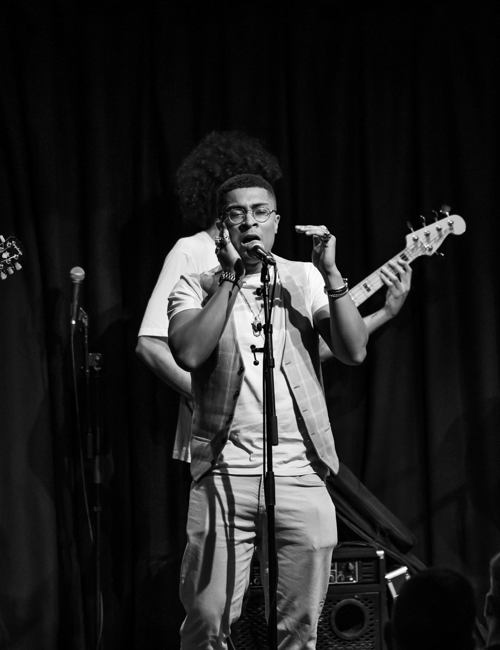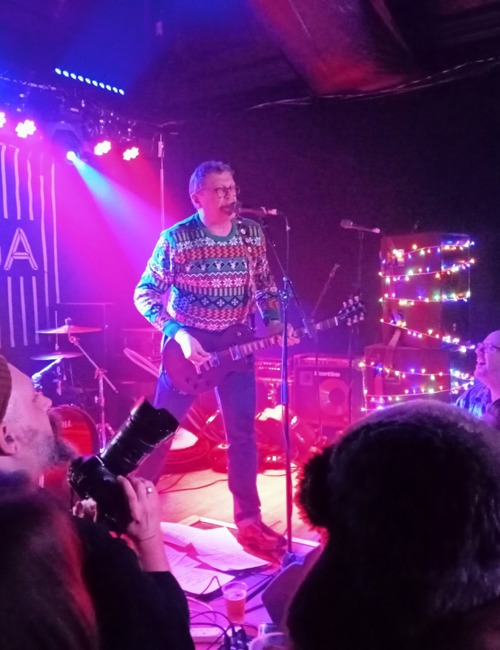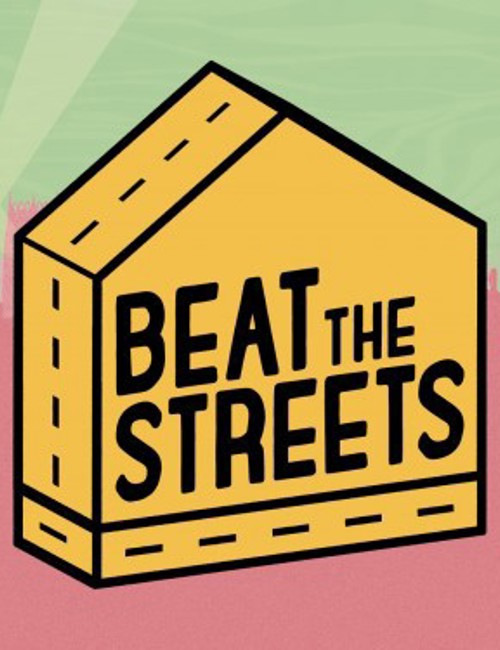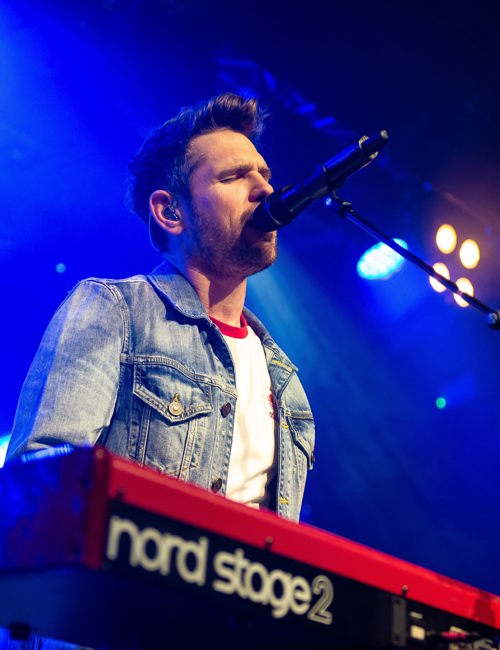Our Phil Taylor spoke to the Hartnoll brothers - better known as Orbital - as they prepare for their 2024 tour...

After almost 35 years of making music together, Orbital are still finding new things to do, and are still excited about doing them.
In 2024, the duo will be performing their self-titled debut record, known as The Green Album, live, for the first time ever. This is the album which is home to their seminal track Belfast, as well as a live version of Chime. The show comes to Rock City at the end of April, at about the midpoint of the tour.
However, for Orbital, doing these shows is not just a matter of plugging in their instruments and playing the songs. These tracks were created in pre-Internet days, as the eighties became the nineties, on now-obsolete equipment and saved on old-fashioned magnetic media, such as floppy discs and cassettes. The song which launched their careers, Chime, was famously recorded on a hand-me-down four-track tape recorder. This project was going to take some serious thought.
As Paul Hartnoll says, the band always performs in a way which is “free and full of improvisation in production and arrangements.” They would need to find and recover the old tracks, and set them up so that the Orbital of 2024 could reinterpret them “with a modern sensibility.”
Over a video call, Paul explains how he and his brother, Phil, gathered up the original gear, located the old floppy discs, and tried to work out how to connect everything together. Phil adds an anecdote about how he spent time gathering together the right cables, and managed to track down two that he needed online.
“But just after I ordered them, I found a whole box of hundreds of cables. Typical!” he says with a sigh.
(Perhaps this is another reason to hold on to that box of cables so many of us keep in the loft or garage, ‘just in case’.)
For Orbital, recreating those old tracks was a long and sometimes difficult process. I ask them whether they feel like it paid off.
“It was an exciting process. I wasn't sure it would work but it did,” says Paul, agreeing that perhaps this is testament to the reliability of that old technology.
Orbital are a tech-centred band, and were arguably key pioneers of a genre, one which is still going strong. But, as their experiences of making the new album illustrate, technology has progressed with frightening speed over the decades they have been active. The hardware and software which is now available to DIY musicians is incredibly more powerful, and significantly cheaper, than it was in the 1990s. So do the brothers think this has been a good influence on those looking to make music, I ask.
Soft synths are amazing now, they really are, and you can get by having a little writing program and fiddling about in that. And that gives people loads of joy!
“There's so much more [tech] now than we had in our days, which is a good thing. Whether you can make a career out of it I'm not too sure,” Paul says. “I don't know how easy it is to make a career out of making music now anyway. I don't know how we'd get on if we were starting out now. But it does make it more accessible for people to write music, which can be fun just as a hobby.”
“Soft synths are amazing now, they really are, and you can get by having a little writing program and fiddling about in that. And that gives people loads of joy! There's a couple of people that actually are a bit more my age and I've taught them Ableton and they've gone on and got twenty tracks now… because they just jumped at it.”
Phil adds; “Yeah, it totally opened it up for them."
Paul resumes his explanation of how tech has changed the experience, and the emphasis, for those starting out in the music business.
“When I was eighteen, you could buy a cheap guitar and sound like a punk band or Bob Dylan or whatever, as long as you could play it, but now you can buy a laptop and sound like Kraftwerk. That was not a possibility when I was eighteen. You could not do that!" he says.
“What laptop's that then, Paul?” interjects Phil. “What laptop can make you sound like Kraftwerk? I want to get one of those,” he laughs.
“Any of them - with the basics of Ableton you can sound like Kraftwerk. As long as you can play the instrument,” Paul answers, taking this seriously.
It’s then that Phil raises a topic which I’d - perhaps subconsciously - been uncertain about introducing during the interview.
I don't know how easy it is to make a career out of making music now anyway. I don't know how we'd get on if we were starting out now
“Just get an AI to do it. Bob's your uncle,” he says.
For some people, including many musicians, AI can be a difficult or controversial area. While some embrace it, there are others who consider it a threat, and another group who are indifferent or see it as another fad. Now that Phil has mentioned it, I ask if the brothers are willing to share their thoughts on AI, or whether this is something of a taboo topic.
“It's our future isn't it? I'm not worried about it taking over my job, if that's what you mean by a taboo,” says Paul. He continues, without arrogance or malice, “I probably would be worried if my job was writing music for daytime television – I might be worried. I know lots of library writers who do think that AI music is good enough to take over that job, which is really upsetting for library writers.”
Does Paul see AI as positively helpful, though?
“I'm looking forward to it preventing me from having carpal tunnel syndrome when I'm programming too much,” he says. “If I can tell an AI, ‘Oh yeah, see this riff I've just written, get the drums, layer them in, put that riff in every sixteen bars, take the drums out the third time round,’ and have it go, ‘Yes Paul, I'll arrange that for you now, what BPM would you like?’ so that I don't have to do the donkey work of the programming … That's how I see it really improving my life, that I'll be able to tell the computer how I want to arrange the track. I think music like that, but I have to laboriously program it into Ableton in little cubes. If I don't have to do that, that's going to be amazing.”
Perhaps unsurprisingly, given their history of embracing the cutting edge of music tech, the Hartnoll brothers are clearly not fazed by AI, but see it more as acting like a studio assistant, “or an intern,” as Phil says.
But this kind of help won’t come cheap, Paul adds. “Imagine how much the Ableton AI bot's going to cost!” he laughs.
From there, the conversation turns to Orbital’s 2024 tour, and their visit to our city.
“We played it last year for the first time in ages. It was pretty much a sold out gig, and it was an absolute riot, wasn't it?” says Paul.
“Yeah, it was brilliant!” Phil agrees.
“It was one of the best gigs on the tour. People were going mental,” Paul continues. “And it's one of those venues that I like that's kind of sideways – wider than it is long. I love that. You feel like you're all in it together, it's a really nice space, but it gets quite a lot of people in it. So that was a fantastic gig last year.”
The band also played the venue much earlier in their career, in 1992 as part of the Megadog MIDI Circus tour.
“To our knowledge, it was the first tour put on by a rock and roll agent,” Paul explains. “Dan Silver wanted to sell dance music to rock venues. He had a really hard time doing it. The rock venues were saying, ‘This is rave music, this isn't going to work in a rock venue’. And it did. It was a fantastic tour.”
Orbital played some other legendary venues during that tour, including The Leadmill in Sheffield and London’s Brixton Academy, along with acts including Aphex Twin, Drum Club, Spooky and the Megadog DJs. Paul clearly has fond memories of that tour.
It's our future isn't it? I'm not worried about it taking over my job, if that's what you mean by a taboo
“It was a rolling roster – no one was headlining any one night. If you played last one night, you played first the next night. It was really, really democratic and really like putting on a rave. We tried to keep the venues open until two, if possible. And it just went down brilliantly,” he says. “And Rock City was one of those venues … It was great, hooking up with the local like-minded rave crews, that kind of thing. So I've always had a soft spot for Rock City because of things like that; it was part of our beginnings of touring in rock venues.”
And now, the duo are returning.
“Yes, here we are again, bringing our first album back, which we never did back then!” Paul laughs.
He agrees that it is a great thing for Nottingham, and for the wider live music scene, that Rock City is still there, as well as Rescue Rooms, which he describes as 'that lovely little venue next door'.
“I went and watched the bands there before we played last time at Rock City,” he says.
Paul is also keen to explore the cities that the band stops off at during their tours, and has plenty of stories to tell about Nottingham.
“I always run when I'm on tour, and I did a five kilometre run up through the cemeteries, and then there's a big park that I went round and round,” he tells me. “Then I found this absolutely bonkers museum. They've got a human skull in there and things like that – they've got all these haunted objects in there that supposedly caused people all this trouble in their lives… a haunted doll's house…”
As we talk, Paul is googling and finds what he’s looking for.
“It’s The Haunted Museum – it's just round the corner from Rock City. The lady on the counter said, ‘Hang on, you're from Orbital!’ and I put her on the guest list for the gig!”
When it comes to pre-gig rituals, or perhaps ways to stay sane when on tour, they both put on wry smiles.
“I don't like saying them really, it's sort of a bit jinxing it,” says Phil.
“You're being superstitious!” jokes Paul.
“I am … but anyway, ‘Have a good one!’” says Phil.
“He always says that to me, and if I answer him it freaks him out,” Paul explains. “I have recently started to say something along the lines of, ‘Already planning to,’ or ‘Already am!’ but he doesn't like it … Actually I do a little bit of Morris Dancing backstage before I start because I was a Morris dancer for a couple of years, so I kind of limber up by doing a few steps of Bledington behind the stage.”
We return to talk of the new Orbital show, and what the audience can expect.
“Well, we're going to support ourselves, by playing early singles that came out before The Green Album. We won't play Chime, we'll save that, but all our favourite B-sides and obscure tracks,” says Paul. “We're going to be our own support band and just really mess with them, and jam with them, which for us will be like the warm up, an exercise routine so when we come up, we'll have been on for forty minutes so we'll be totally limbered up and that's going to be fun I think.
“Then it's going to be The Green Album. It's going to be familiar, only in the way that whenever we play live they're familiar, but they're always slightly different – there’s always a different take on it. So it will be familiar but different,” Paul concludes.
While it’s clear that die hard fans are going to love it, I wonder if the brothers are hoping for a wider audience to come along to these shows, too.
“I don't think it's going to sound that retro.” suggests Phil. “After fiddling about and getting it all up and running, I don't think you'd walk in and go, ‘Wow this is retro!’ Do you know what I’m saying? It's not obviously retro because we're Orbital anyway and we haven't got those retro bits in that sense. So, it's hard to know what a twenty-something-year-old would feel when they just walk in not even knowing any Orbital, but I would like that. I'd like to encourage that to see what that reaction is.”
Paul summarises neatly: “I think it's going to be a good Orbital gig, that's what I feel about it. It'll be fresh for us to perform and I think it'll have a fresh feel to it. It's an experiment - we've never done this before and I'm really looking forward to seeing how it turns out.”
The Green Album - Live – 2024 headline tour comes to Rock City on 24 April 2024
We have a favour to ask
LeftLion is Nottingham’s meeting point for information about what’s going on in our city, from the established organisations to the grassroots. We want to keep what we do free to all to access, but increasingly we are relying on revenue from our readers to continue. Can you spare a few quid each month to support us?
